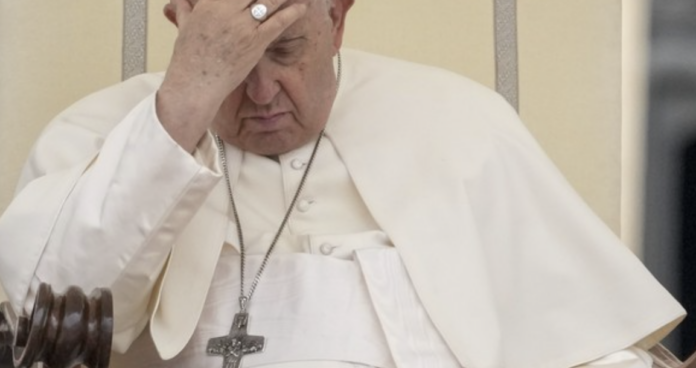Vatican asked bishops and prominent Catholic lay figures to moderate their criticisms on social media of Pope Francis and wider church leadership, as they were concerned that this was causing divisions and damaging the reputation of the church.
The Vatican’s communication department issued a 20-page report entitled “Towards full presence”. A Pastoral reflection on engagement with social media.”
Social media should reflect the Christian style, and not be reactive. We should be cautious not to fall for the digital traps that are hidden in content designed to cause outrage and emotional reactions among users.
Posting and sharing content which can lead to misunderstandings, increase division, cause conflict and strengthen prejudices is not acceptable. Online exchanges are prone to heated, sometimes disrespectful debates.
The document then goes on to criticize Catholic leaders from all backgrounds, as many continue their criticism of Pope Francis’ conduct. He is widely considered to be the most leftist pope in the history of the church.
We all can be tempted to look for “a speck in the eyes” of our siblings (Mt 7;3), by making public allegations on social media or by causing divisions within the church community, just as the disciples of old did (Lk. 9:46).
It is especially concerning when Church leaders, such as bishops, priests and prominent lay people, engage in polemical, superficial and divisive communication. They not only cause division within the community, but they also allow others to use similar communication methods.
It continues, “When faced with this temptation, it is often best to not react or to respond in silence, so as to not dignify the false dynamic.” It is clear that such a dynamic doesn’t build, but does cause great harm. Christians are therefore called to show a different way.
Francis called criticism of his leadership “rash” earlier this year and asked his critics to “say it face-to-face.” He was responding to his dealings with Chinese Communist Party (CCP), as well as to his claim that the Church should soften its position on homosexuality.
Francis’ critics were emboldened after the death of Benedict XVI, in December of last year. He was a fierce opponent of Francis’ other liberal positions, such as his stances on climate change, migration, and communion for divorcees.
In a long interview with the Associated Press, he said: “The only request I have is that they do so to my face. That’s how we grow together.” You prefer they don’t criticise for the sake tranquility.
Some have speculated that he could follow Benedict’s example and resign from the role, rather than pass it on after his death. He said that his health issues were under control. “I could die tomorrow but they are all under control.” I’m in good health.”




